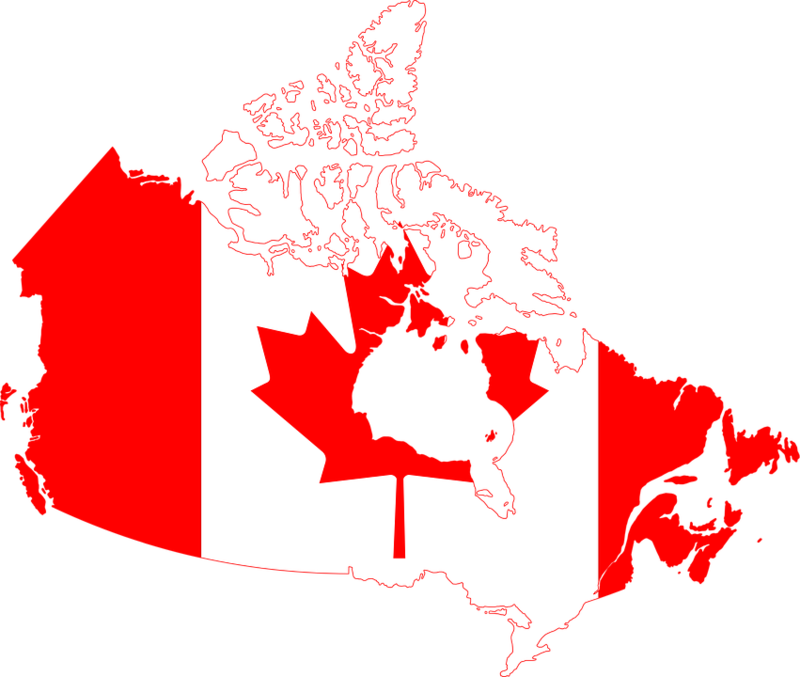






Canada’s Online Gambling Choices Still Under ThreatIs Country Moving Down The Wrong Path? |
|
|
 Just as the US Courts are ruling in favor of increasing online gambling options, Canada may be heading down the opposite path.
Just as the US Courts are ruling in favor of increasing online gambling options, Canada may be heading down the opposite path.
Canada’s gambling industry is estimated to have generated $17.3 billion CAD in 2017 and is rapidly growing. Up until now it has been legal in Canada to bet online as long as the online casino or poker site did not have physical operations in the country. This has been a concern for provincial casinos, like PlayNow.com, Espacejeux, and PlayOLG, whom are the only companies that have a licence to operate in their respective jurisdictions. This is also a concern for legislators who see Canadian players gambling with foreign websites as lost tax revenue. In 2016, the Quebec legislature passed Bill 74 which, among other things, included a provision to force Internet Service Providers (ISPs) to block international online casino operators.
Loto-Quebec, the provincial gambling body in Quebec, operates EspaceJeux.com, an online casino that requires all players to be residents of Quebec. More importantly, EspaceJeux’s profits are passed on to the provincial government just the same as lotteries and land-based casino profits, which are also regulated. As Simon Stern from toponlinecasinos.ca explains, up until 2016, Loto-Quebec has stated on the record that they were taking too much of a cut, meaning their Return to Player (RTP) was much lower than competing internationally based casinos. They were unable to grow rapidly enough to be sustainable due to players having easy options to play online where they had a better chance of winning. Since then, Espace Jeux has increased their RTP but are subsequently not meeting their profit goals as the margins tighten. Competition is fierce internationally and the largest online casinos have huge revenues to offer huge welcome bonuses and excellent RTPs. The answer for Quebec was to simply introduce legislation to eliminate the competition by forcing ISPs to block these websites. Bill 74 was passed with exactly that provision in 2016.
How is Quebec Bill 74 supposed to work? Loto-Quebec is to give a list of over 2000 gambling websites that ISPs in the province should block. They are also supposed to offer a tender to international online casinos to become partners with EspaceJeux where they will redirect registered players to these casinos through EspaceJeux but Loto-Quebec will maintain the customer information and take a cut of revenues. Some of the most visited sites from Quebec include PokerStars, Casino.com and LeoVegas and these parties may be candidates for approval. The law was given many months to set up the appropriate framework to accomplish this goal. All other online casinos will be blocked in the province and the responsibility to block them will be with the ISPs. The ISPs, which include some of the largest corporations in Canada, do not want to take on this burden and civil rights activists are concerned that this action leads the country down a slippery slope of allowing the government to restrict free speech and an open internet.
The consortium of ISPs, the Canadian Wireless Telecommunications Association (CWTA), formally filed complaint to the national body governing telecommunications, the CRTC, who is formally the only organization who legally have jurisdiction in this case. The CRTC came back with a recommendation that the law was unconstitutional and that they alone, along with the Government of Canada, have jurisdiction but they will await the court’s decision. Thus, the law introduced by the provincial Government of Quebec should not be implemented. The CWTA immediately filed suit in Quebec Superior Court to block the law from being implemented, where it stands today. The court case was delayed until March 2018 where a ruling still awaits. The general consensus among legal scholars is that the law will be rejected on constitutional grounds but will likely head all the way to the Supreme Court of Canada.
What if the law is able to stand? A ruling in favor of Bill 74 would be the first such case that would allow provincial governments to restrict what their residents can view on the internet. The immediate result would be that Quebec residents would be unable to play at international online casinos and poker sites that are not licenced through EspaceJeux and Loto-Quebec. The implications are far reaching in that it opens the door for similar laws to restrict other facets of a free internet and for other provinces to do the same. Canada will go from one of the most popular markets for online gambling to one of the most restrictive. More importantly, Canada could go from one of the most open societies in the world to one that restricts free speech and freedom of internet.
